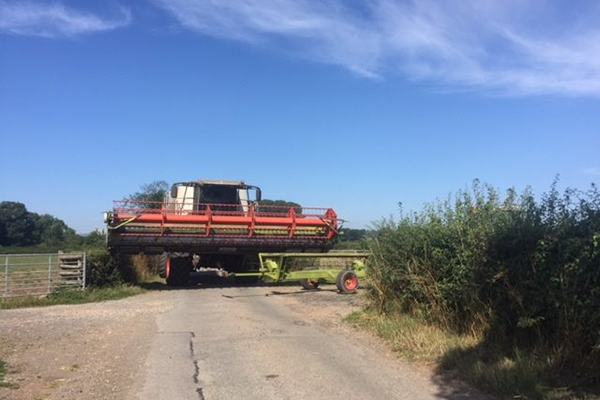Julia Unwin, chair of the Civil Society Futures inquiry, argues civil society organisations should focus on their attitudes and practice
Everywhere you look, challengers are taking on incumbents and changing the rules, for better and worse. Lidl and Aldi shaking up supermarkets. AirBnB displacing hotel chains. Uber taking on black cabs. And not just in business: a challenger political party with almost no MPs spearheaded our biggest constitutional change for decades.
We are seeing it in the civil society space too, where unexpected new possibilities are opening up fast. The #metoo movement catapulted out of Hollywood headlines and, turbocharged by social media, energised a new generation of women to take on sexual abuse. Those Uber drivers? Dynamic new unions for the gig worker age are organising to secure their rights. Grieving angry parents challenging the charities that they believe failed their children so dreadfully.
In the non-profit world just as in the for-profit world, there’s both cause for celebration in the benefits these revolutions bring for many people, and big new challenges dealing with some of the effects.
What does it mean if you’re an incumbent?
As household names from Tesco to Hilton have found - sometimes painfully - you have to learn and adapt. Oxfam was founded over 75 years ago, Save the Children nearly 100, but in a few short years they and others have been called into question like never before. Damagingly competitive fundraising, accusations of politicisation, revelations of sexual abuse as #metoo reaches them too.
The response cannot be simply self-defence. We need the energy and ideas that every part of civil society can bring, large and small. People everywhere, businesses and the state all depend on us: from the arts to Neighbourhood Watch to Park Runs that make places good to live, to action and advocacy on major issues from homelessness to poverty here and abroad.
The answers for incumbents - and the rest of us - lie in recognising how the world is changing and getting in step, or even a step ahead.
When you can buy, blog or berate with a few taps on your phone, people’s expectations of power in every sphere are shifting rapidly. Institutions are being ever more questioned as, rightly, their inner workings are opened up. The elites in every sphere are challenged. The foundations of our economy and people’s working lives are being shaken as AI and robots become part of the everyday.
Our society is fundamentally shifting: more older people - and under-unemployed younger people, more disabled people living longer, more fluid genders, more diverse ethnic and religious identities. Divisions seem to be everywhere: across races, generations, leavers and remainers, town and city. All this against a backdrop of environmental degradation.
Facing all this, it’s no surprise that so many people feel powerless and divided from each other, mistrustful of those in authority who are too often remote and unaccountable. These are the common threads we have heard repeatedly through the inquiry into the future of civil society that I have chaired these past two years. From Penzance to Peckham, Epsom to everywhere else, the similarities are striking.
And too often the powerlessness and mistrust expressed is towards the large incumbents of civil society too. Like London politicians and large corporations, big charities and voluntary organisations are regularly seen as disconnected and unaccountable from the people they exist to support.
The successful challengers in every sector recognise these are the issues of our age and are responding, whether it’s “take back control” or “take on sexism”. Now all of us in civil society must too, not least the incumbents.
It requires us to go back to our roots, rediscover the enduring purpose of civil society: to connect in order to shift power.
We must share more decision-making and control with people and communities, shaking up familiar hierarchies in civil society organisations that too often exclude many. Just as the governance structures and approaches of FTSE companies are increasingly challenged, we must bring an accountability revolution in trusteeship, putting the people we serve ahead of big donors and government.
We must bridge the damaging social divides of our age, building deep, lasting relationships with and among the people and communities we exist to serve – relationships that too many organisations have lost. Counter-intuitively, in an age of accelerating change we must move at the careful speed of trust: putting in time and energy to really know people.
From Windrush to Universal Credit, it is communities themselves that know the real problems that need solving. We must end the use of short-term ‘impact results’ that look good on an annual report, and instead invest in building grassroots relationships, instituting new metrics of success that explicitly measure this depth of connection.
When so many are frustrated by our dented democracy – as the Brexit vote showed – we must devote more time and resources to building a bedrock of trust with those we work with, earning that trust by speaking up to politicians and corporations, even when it’s unpopular or uncomfortable, even when they fund us.
It’s all too tempting to think that government policies or levels of funding need to change first. In fact, it starts with our own attitudes and practices. Incumbents and challengers alike, to help lead our country through the tumult of the next ten years - and the next 75 or 100 - this is where we must start.
Julia Unwin is chair of the Civil Society Futures inquiry and tweets at @juliaunwin
Read the final findings of the Civil Society Futures inquiry here.
Related articles
-
Changing how we see heritage can help us build back better
Becca Antink
How the heritage sector is making a difference in local communities.
-
Counting on recovery: collecting the data to inform policy post-crisis
Tom MacMillan
We’re starting to gather evidence on community responses to the pandemic, to help shape post-crisis policy. If you are too, let’s team up.
-
Farming needs a youthquake
Tom Levitt
“A rich, well-to-do rural county”: Tom Levitt breaks through outside perceptions during his time on the FFCC bike tour in Cheshire




Be the first to write a comment
Comments
Please login to post a comment or reply
Don't have an account? Click here to register.